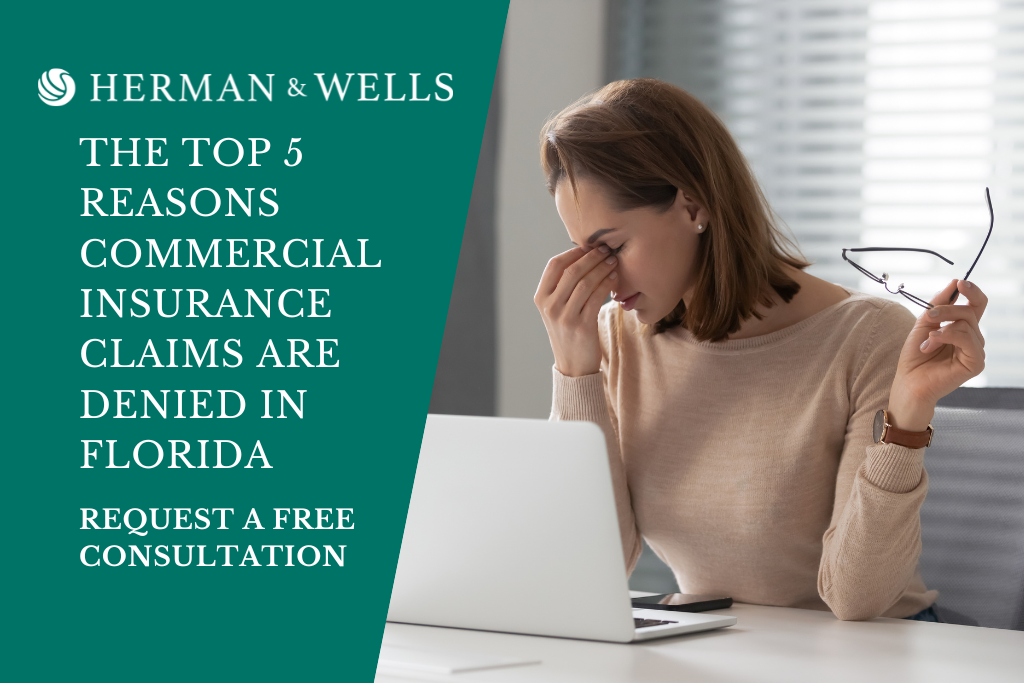When professionals find out what type of law I practice, it often leads to a discussion about their personal disability insurance coverage (or lack thereof). The response I hear most often from those that have coverage is “I have full coverage.”
When they say that, it makes me want to paraphrase Inigo Montoya from the movie The Princess Bride, “You keep on using that term full coverage, I do not think it means what you think it means.” I inquired as to what “full coverage” means in terms of their disability insurance coverage. The farther I dig, the more nervous they become. Some questions that make people question their coverage are:
- Is it a private policy or through your work?
- Does it cover you if you are disabled from your occupation or do you have to be disabled from any occupation or is it a mix of both?
- Does it exclude or limit certain illnesses or conditions?
At this point, they are openly nervous. Realistically, oftentimes, even the agents that sell disability insurance, do not have any idea of what to look for in a policy.

The Cliff Notes: Key Takeaways From This Post
- 1Most policy holders don’t know what “full coverage” means in terms of their disability insurance coverage.
- 2One may obtain a sponsored or private policy. Private policies are more expensive; however, provides more options than a sponsored one.
- 3You can have both an employer sponsored policy and a private policy.
- 4Herman & Wells’ lawyers have a long track record of success in disability claims cases and are dedicated to helping clients get the benefits they deserve.
Choosing Between Employer & Private Policies
First, you should decide whether to obtain a policy through your employer (if one is available) or invest in a private policy. I would recommend a private policy because private policies are not governed by the federal employee benefits law known as ERISA. Although private policies will be more expensive, there are several benefits of a privately purchased individual disability insurance policy over an ERISA Plan.
The most important is that if litigation is filed, the standard of review will be de novo for a private policy rather than arbitrary and capricious. This means the insurance company must show they made the correct decision in denying a claim rather than only having to show the denial of the claim is reasonable.
Additionally, being outside the purview of ERISA also means discovery is allowable and the judge is not limited to the evidence in the insurance company’s claim file to decide the case. Lastly, you will be entitled to a jury trial, and bad faith claims are allowed.
The Importance of ‘Own Occupation’ Policies
For professionals, the best option is a policy that deems you disabled if you cannot perform your own occupation for the life of the policy. This is referred to as an “own occupation” or “own occ” policy.
Most policies have a definition of disability that is based on one or more of the following:
- whether you are disabled from performing the tasks specifically related to your own occupation, any occupation at all, or
- your own occupation for a specific period than any occupation for the remainder of the policy term
In the policies that include the any occupation language, there are variations from policy to policy as to what any occupation means. For example, any occupation could mean a job where you can earn 60% of your prior income, or perhaps the earnings qualifier is removed and you are considered not disabled if you are able to be a greeter at Wal-Mart.
With a private policy, you can control those variables, but you likely will have to shop around quite a bit to find one with the best definition of disability.
Understanding Exclusions and Limitations
Private policies also give you more options regarding illnesses or conditions that are excluded or have a limited benefits period. In almost every employer sponsored policy, there are extensive exclusions and limitations.
For example, many employer sponsored policies limit payments for a disability caused by or contributed to by a mental or nervous condition to a period of 24 months of benefits. Other policies limit or refuse to pay for conditions with “self-reported” symptoms such as pain, migraines, or Fibromyalgia.
Although most insurers today will not write a disability policy without a mental health limitation, investigating private policies will allow you to explore your options regarding which illnesses and conditions are excluded or limited.
Choosing the Right Disability Benefit Amount
The amount of the disability benefit is another area where private policies provide more options. Policies through your employer are almost always based on a percentage of your pre-disability earnings and usually fall between 50% – 60% of your earnings. With a private policy, you can choose if you want a percentage, what that percentage will be, or you can choose a fixed monthly benefit amount. You can also choose what, if any, benefits will offset the disability amount.
Nearly all employer sponsored policies reduce your monthly benefit amount by the amount you receive from other income such as Social Security, injury settlements, and retirement. Private policies may allow you to exclude this language or provide the option to purchase policy riders to limit these reductions, thereby giving you more money per month.
You Can Combine Employer And Private Policies
When you are making the decision regarding what type of disability insurance policy to purchase remember there is nothing that says you cannot have both an employer sponsored policy and a private policy. As a rule, private disability insurance policies are more expensive than boilerplate employer sponsored disability insurance policies.
Your premium will depend on the amount of benefits you seek, the options/riders you choose, and underwriting for your current health conditions. Just remember that when buying disability insurance, the old saying “you get what you pay for” is true.
Make an Informed Decision When Buying Disability Insurance
If you’ve had your disability claim denied, it is critical that you seek legal representation right away. At Herman & Wells, we have a long track record of success and are passionate about helping clients get the benefits they deserve.
William Demas is an attorney at Herman & Wells. He concentrates his practice on the representation of individuals in disability, life insurance, AD&D, and ERISA matters. If you have questions regarding this article or other disability/ERISA matters, please contact him at 727-821-3195 or bill@hermanwells.com. Don’t wait, call us and schedule a free consultation today!





